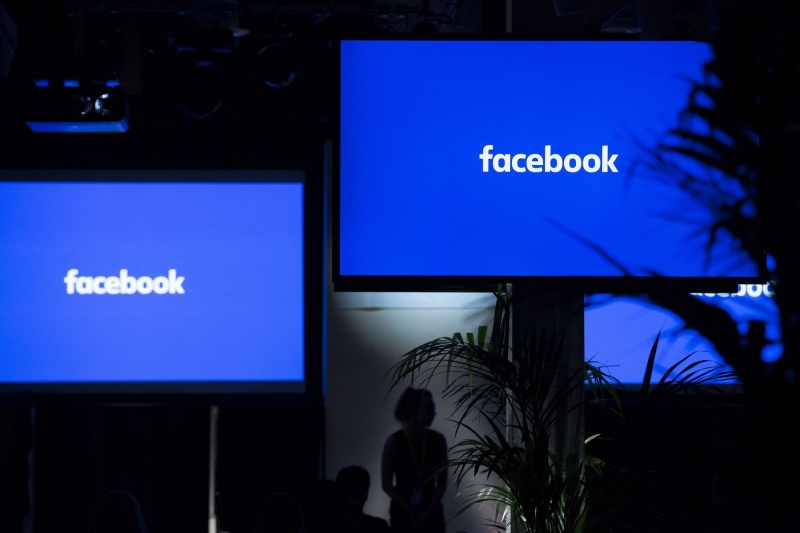Facebook Risks Instagram-WhatsApp Breakup in Antitrust Case
The Federal Trade Commission and state prosecutors led by New York said they filed antitrust complaints against Facebook on Wednesday, alleging the company is c
- by B2B Desk 2020-12-10 07:47:14
A lawsuit has been filed against Facebook Inc. by the United States. Antitrust officials and a coalition of countries want to split the company by canceling its acquisitions of Instagram and WhatsApp - deals the government says are part of a campaign to illegally crush competition.
The Federal Trade Commission and state prosecutors led by New York said they filed antitrust complaints against Facebook on Wednesday, alleging the company is cracking down on competition from competitors to protect its monopoly on social media. The lawsuits seek court orders to rescind Facebook's takeover of Instagram and WhatsApp, according to copies of complaints filed by the states and the Federal Trade Commission.
The cases represent the largest organizational attack against Facebook in the company's history. They are pursuing the October Justice Department lawsuit against Alphabet Inc. Google. Together, the shares of Google and Facebook represent the largest monopoly cases filed in the United States. Since the Justice Department filed a lawsuit against Microsoft Corp. in 1998. In contrast to the Google case, Facebook's complaints seek a court order to dismantle the company.
Shares of Facebook fell 1.9 percent to close at $ 277.92, after falling more than 4 percent earlier.
"Personal social media is critical to the lives of millions of Americans," said Ian Conner, director of the competition office for the Federal Trade Commission, in a statement. "Facebook's actions to consolidate and maintain its monopoly deprive consumers of the benefits of competition. Our goal is to defeat Facebook's anti-competitive behavior and restore competition so that innovation and free competition flourish."
New York Attorney General Letitia James said during an online press conference that Facebook has crushed or obstructed what the company viewed as potential threats.
She said Facebook had used "large sums of money" to acquire companies that could threaten its dominance, particularly Instagram and WhatsApp. The goal of the effort was to "get all the oxygen out of the room."
Facebook became a major target of President Donald Trump in the last two months of his administration. Last week, she threatened to use the annual US veto. Defense authorization bill unless Congress adds a contestant to repeal a law that protects tech companies, including Facebook, from liability for most content posted by users. The request came after months of attacks by Trump and some other Republicans, who accused tech platforms of suppressing conservative views after they began reporting misleading and false posts about the pandemic and the elections. These complaints are not part of the lawsuits filed Wednesday.
Facebook and its tech peers are facing a wave of bipartisan hostility over their control of digital commerce and its ability to influence what users see and read.
Investigations of the companies began in the summer of 2019 after the Federal Trade Commission and the Justice Department agreed on a plan to split the audit into Facebook, Google and Amazon.com Inc. and Apple Inc. The A House report , published in October after a 16-month investigation, found that the four companies are misusing their market power as guardians of the digital economy.
It would be up to President-elect Joe Biden's Justice Department to move the Google case forward, while the Facebook case would fall to whoever Biden chooses as chairman of the Federal Trade Commission if Trump-appointed Joe Simmons leaves agency. Simons, who is a Republican, voted with two Democrats in the agency to approve Facebook's complaint. The other two Republicans voted against it.
Facebook called the complaints a "review history," and said it was Facebook's investments in Instagram and WhatsApp that made it successful. Both acquisitions were investigated and approved by the Federal Trade Commission when announced.
"The government now wants to terminate the service and send a chilling warning to an American company that there is no final sale," Jennifer Newstead, Facebook's general counsel, said in a statement. "Individuals and small businesses don't choose to use Facebook's free ads and services because they have to. They use it because our apps and services offer the most value."
Facebook offered Instagram a billion dollars in 2012 when it only had 25 million users and had no income, but it is already starting to take over the mobile photo sharing market. The Federal Trade Commission said Facebook "quickly realized that Instagram was a vibrant and innovative personal social network that posed an existential threat to Facebook's monopoly power."
CEO Mark Zuckerberg realized that by buying Instagram, Facebook "will not only eliminate the immediate threat posed by Instagram, but will also dramatically prevent another company from using mobile photo sharing to gain popularity as a personal social media provider."
The states' complaint says Zuckerberg was able to persuade former Instagram chief executive Kevin Systrom to sell the company "based on Zuckerberg's growing reputation for using Facebook's power as a sword." Systrom asked an investor on Instagram if Zuckerberg was likely to "go into destructive mode" if he declined the offer. Systrom later said: "The bottom line is that I don't think we'll ever escape the wrath of the brand ... It depends on how long we avoid," according to the complaint.
The Federal Trade Commission and the states said the company repeated its anti-competitive takeover strategy when it acquired WhatsApp, the leading mobile messaging company, in 2014 for $ 19 billion. Facebook saw direct messaging apps as a major threat, according to emails that have been included in complaints from Zuckerberg and the employees. In a 2012 email, Zuckerberg said messaging apps could be used "as a starting point to build more general mobile social networks." Facebook's manager of business growth expected internally that "it was the biggest threat we have faced as a company."
The FTC found that WhatsApp as a global service with no links or restrictions to work with any platform made it an attractive acquisition.
The Federal Trade Commission said: "Once again, Facebook has decided that it is better to buy than compete." "After Facebook announced its acquisition of WhatsApp, employees may have internally celebrated the acquisition of" the only company that could have become the next mobile-only FB [.] "
Unlike Instagram, WhatsApp does not bring significant revenue to Facebook at present, but the company is paving the way to turn the messaging app into a commercial and payments service in major international markets, including India and Brazil. In recent years, Facebook has been combining WhatsApp and Instagram with its own network, increasing its power over global communications and making any future disconnections technically difficult.
The lawsuits also accuse Facebook of thwarting competition in violation of antitrust laws by preventing applications that were perceived as competitive threats from accessing its platform. The House committee that investigated Facebook and other tech companies said Facebook "strengthened" its platform against competitors by preventing them from accessing the data they need to grow.
"The two most used strategies were to acquire smaller competitors and potential competitors before they threaten Facebook's dominance and to suppress and crush third-party developers that Facebook invited to use its platform," James's office said in a statement.
Facebook has always denied that it is a threat to competition. Zuckerberg told Congress in July that the company faces stiff competition around the world and is constantly innovating to develop products that users love and avoid being left behind.
"In hindsight, it seems clear that Instagram was going to reach the scale it has today, but at the time it was not at all clear," said Rep. Jerrold Nadler, the New York Democrat who chairs the judiciary. This was an American success story. "
The Facebook complaint is the most significant antitrust measure of the Simmons era since he took over the agency in 2018. Last year, Simmons reached a $ 5 billion settlement with Facebook for privacy violations, a widely criticized settlement. by privacy advocates, Democratic lawmakers, and Democratic agency commissioners. Not ensuring changes in the way Facebook works.
The Federal Trade Commission (FTC) is taking over Facebook just as it was staging a stabbing loss in a monopoly lawsuit filed against Qualcomm Inc.A federal appeals court ruled in August in favor of the chipmaker and overturned a lower court ruling. that the company had abused its dominant position in the cell phone chip market.
Also Read: Top 10 Business Ideas for Introverts - Business2Business
POPULAR POSTS
Loan EMIs to Drop as RBI Slashes Repo Rate - Full MPC December 2025 Highlights
by Shan, 2025-12-05 11:49:44
Zoho Mail vs Gmail (2025): Which Email Platform Is Best for Businesses, Startups, and Students?
by Shan, 2025-10-09 12:17:26
PM Modi Launches GST Bachat Utsav: Lower Taxes, More Savings for Every Indian Household
by Shan, 2025-09-24 12:20:59
$100K H-1B Visa Fee Explained: Trump’s New Rule, Clarifications & Impact on Indian Tech Workers
by Shan, 2025-09-22 10:11:03
India-US Trade Deal Soon? Chief US Negotiator Arrives in Delhi as Talks Set to Begin Tomorrow
by Shan, 2025-09-15 11:54:28
Modi Meets Xi: Trump’s Tariffs, Strategic Autonomy, and the Future of Asia’s Power Balance
by Shan, 2025-09-03 06:40:06
Google Claims Gemini AI Uses Just ‘Five Drops of Water’ Per Prompt, Sparks Debate
by Shan, 2025-08-22 12:34:27
RECENTLY PUBLISHED

Pine Labs IPO 2025: Listing Date, Grey Market Premium, and Expert Outlook
- by Shan, 2025-11-05 09:57:07

The Agentic Revolution: Why Salesforce Is Betting Its Future on AI Agents
- by Shan, 2025-11-05 10:29:23

Top 10 Insurance Companies in India 2026: Life, Health, and General Insurance Leaders Explained
- by Shan, 2025-10-30 10:06:42

OpenAI Offers ChatGPT Go Free in India: What’s Behind This Big AI Giveaway?
- by Shan, 2025-10-28 12:19:11

Best Silver Investment Platforms for 2025: From CFDs to Digital Vaults Explained
- by Shan, 2025-10-23 12:22:46





 Subscribe now
Subscribe now 